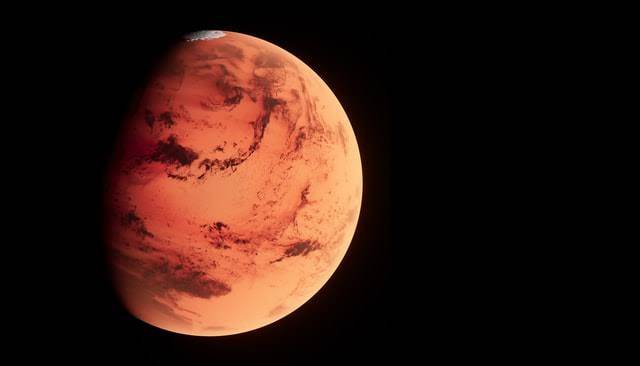
Microbes from ancient Mars caused climate change that made it difficult for them to survive.
The threat of human activity altering the environment of their home planet may not be unique to human life forms in the solar system. A new model implies that ancient Mars was previously habitable enough to support bacteria that produce methane, and that these organisms may have eliminated themselves by irreparably altering the atmosphere of the Red Planet.
Modern Mars has a much thinner atmosphere and is colder and drier than any desert on Earth. Observations from rovers and orbiters over many years have revealed abundant and quite unambiguous evidence of ancient rivers, deltas, lakes, and potentially even oceans. And as a result, microscopic life should have been able to survive.
For the latest study, scientists from the University of Arizona created models of ancient Mars' crust, atmosphere, and climate. The most significant addition was the addition of an ecological model of methanogens, which are microorganisms that consume carbon dioxide and hydrogen and produce methane. They examined whether the conditions would be favourable for them to survive as well as any potential effects they might have on the ecosystem.
Boris Sauterey, the study's first author, said that after creating the model, they 'put it to work in the Martian crust, metaphorically speaking.' This enabled us to assess the plausibility of a Martian subsurface biosphere. And, if such a biosphere had existed, how it might have altered the crust's chemistry and how those changes in the crust might have changed the atmosphere's chemical make-up.
And sure enough, the team discovered that bacteria were able to flourish on early Mars as well as survive there. They would feel the most at ease in the first few hundred metres of depth, according to the simulation.
The researchers then altered their model to represent the potential ecosystem response that the bacteria may have had. They were shocked to learn that their rule might have been quite brief. Within a few hundred thousand years, the bacteria would have taken too much hydrogen from the atmosphere and replaced it with methane, resulting in a global cooling catastrophe.
Because Mars' atmosphere essentially vanished and completely thinned at that time, Sauterey explained, 'these bacteria would have faced the challenge of finding an other source of energy.' 'On top of that, they would have had to travel much farther through the crust, and the temperature would have dropped considerably. It is currently exceedingly challenging to estimate how long Mars might have stayed habitable.
Because Mars' atmosphere essentially vanished and completely thinned at that time, Sauterey explained, 'these bacteria would have faced the challenge of finding an other source of energy.' 'On top of that, they would have had to travel much farther through the crust, and the temperature would have dropped considerably. It is currently exceedingly challenging to estimate how long Mars might have stayed habitable.


